Big banks made a record $0.25 trillion ($250 billion) in profits in 2023, up 2% from the year earlier. And they did so by earning interest on loans and paying out scant amounts of interest to their depositors. This difference, called Net Interest Income, has never been higher on account of raised rates from the Federal Reserve. While this might change now that rates are coming down, those big bank profits are still substantial.
If you’re skeptical of big banks, seeking a more profitable place for your savings, or looking for features not offered by traditional banks, you’re in the right place. There are numerous alternatives to conventional banking that provide secure options for your funds.
In this article, we’ll explore the best places to keep your money outside of big banks. I’ll detail the advantages and disadvantages of each option, highlighting that many of these alternatives not only ensure safety but also offer attractive benefits.
Whether you’re considering moving all your funds away from a big bank or simply diversifying where you store your money for strategic reasons, this guide is for you.
Table of Contents
Why Wouldn’t You Want to Store Your Money in a Bank?
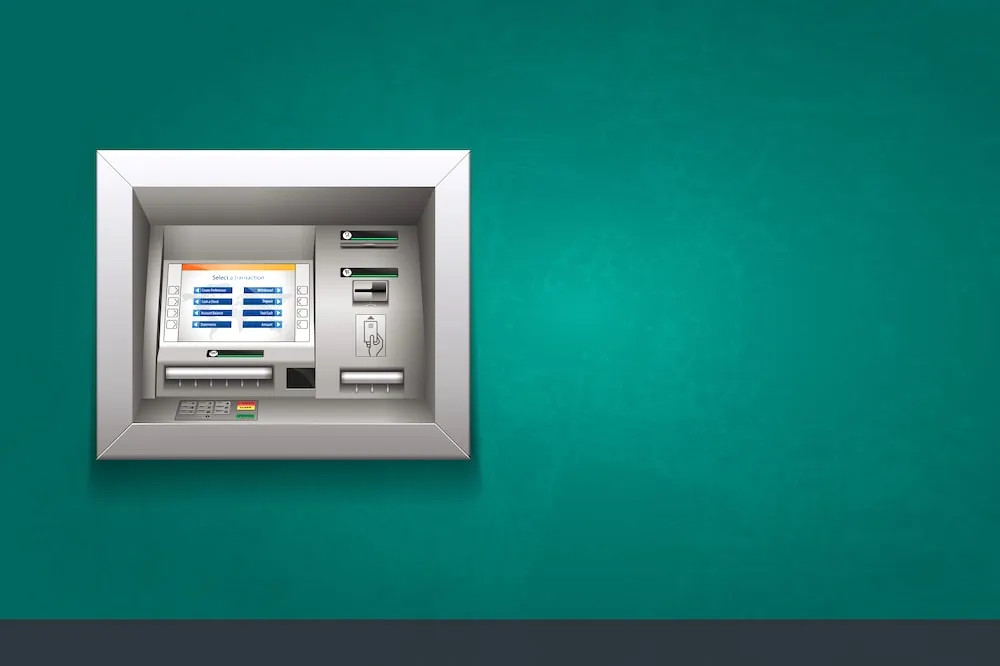
Some people choose not to keep their money in a traditional bank for a plethora of reasons.
To start, a different financial institution, such as an online-only bank, may offer more financial flexibility and better tools. Often, credit unions and other bank alternatives provide better rates on loans to finance big purchases, such as auto loans and mortgages. And many people also choose not to put all of their money in checking and savings accounts because other types of financial products and accounts can be more fruitful ways to grow their savings.
1. Treasury Bills

Just as many consumers and businesses do, the U.S. government borrows money to make ends meet. It does so through the U.S. Treasury, which issues three primary kinds of debt:
— Treasury bonds (T-bonds): Mature in 20 to 30 years
— Treasury notes (T-notes): Mature in two to 10 years
— Treasury bills (T-bills): Mature in 4 to 52 weeks
Treasury bills—which can have maturities of four, eight, 13, 17, 26, and 52 weeks—are sold in increments of $100 (which is also the minimum purchase amount), up to a maximum of $10 million. You can typically purchase these through the U.S. government’s Treasury Direct website or through a bank or broker.
When you buy a T-bill, you lend money to the U.S. government for a specified period of time. The price for a T-bill will vary, but typically will be below the bond’s face value, or “par value.” (For instance, a $1,000 T-bill might cost $975 to purchase.) When the T-bill matures, you receive the full par value of the bond—so the return on your investment is the difference between the discounted price you paid at auction and the par value of the T-bill.
Treasuries are one of the most secure investments in the world due to their virtually guaranteed repayment—the federal government hasn’t defaulted on a debt payment since moving away from the gold standard in 1971.
When you receive the repayment of your T-bills’ face value, the income generated is exempt from state and local taxes, which can make them a good choice for investors looking for reliable, tax-advantaged income.
2. Credit Unions

Credit unions are member-owned, not-for-profit financial institutions. They are often highly involved in a local community and are known to provide excellent customer service.
These financial institutions are just as safe as banks. Credit unions have their own equivalent to the Federal Deposit Insurance Corporation (FDIC), which is the National Credit Union Administration (NCUA). The NCUA insures the money in each credit union member’s account up to $250,000.
Credit unions offer all the functions you’d expect from a bank, such as direct deposit, mobile pay, loans, and much more. But because credit unions don’t have shareholders to pay, they can offer their members better terms on loans and more competitive rates on savings accounts.
Like Young and the Invested’s content? Be sure to follow us.
3. Online Banks

Online banks allow users to conduct all of their banking functions through an internet connection.
Just like traditional brick-and-mortar banks, most internet-based banks offer Federal Deposit Insurance Corporation-insured accounts, so your money is safe, as is your personal information.
Related: 12 Best Long-Term Stocks to Buy and Hold Forever
An online savings account is simple to open, as these banks typically either don’t require a minimum balance to get started, or a very low one. And because they don’t have to spend money on physical buildings and associated costs, they can pass some of those savings on to their depositors—in the form of higher rates on savings and other interest-bearing vehicles. Fees are often lower, too.
4. Cash Management Accounts

A cash management account is similar to an online bank account. However, instead of a bank, the providers are typically broker-dealers or advisory firms that partner with banks to hold your cash. These products usually combine features from investment, checking, and savings accounts, all within one account. If you want fewer accounts to manage, a cash management account may be an excellent fit for you.
Related: 11 Best Non-Stock Investments [Alternatives to the Stock Market]
Often, cash management accounts have minimal or no fees and offer above-average interest rates. The banks they partner with to hold your cash and earn interest are generally FDIC-insured, meaning your savings are secure, but you should read the fine print associated with the account to make sure you understand any limits or exceptions that apply.
5. Investment Accounts

Investment accounts can grow your money much faster than traditional savings accounts, high-yield savings accounts, or basically any other type of non-investment account. But they also come with far higher risk than those options. Money you put into stocks, bonds or other securities should generally be money you’re prepared to invest for the long term to give you the best chance of growing your funds.
Related: The 9 Best Dividend Stocks for Beginners
While some investment accounts allow you to invest in alternative assets like cryptocurrencies and options, the safer markets to put your money to work in are the traditional stock and bond markets. Consider the investments below:
Stock market
– Individual stocks
– Stock mutual funds
– Stock exchange-traded funds (ETFs)
Related: 5 Best Vanguard Dividend Funds [Low-Cost Income]
Bond market
– Individual bonds
– Bond mutual funds
– Bond ETFs
Related: The 7 Best Dividend ETFs [Get Income + Diversify]
6. Money Market Accounts

A money market account is an interest-bearing product, similar to a savings account, that may also allow limited debit card transactions or check-writing privileges, with a monthly cap on such transfers.
Related: Best Vanguard Retirement Funds for a 401(k) Plan
The interest rates on money market accounts are often higher than those of a standard savings account. Deposits are insured for money market accounts up to $250,000 per depositor, making this a secure place to keep your cash.
As money market accounts typically offer high interest rates and permit a predetermined number of transactions each month, some people keep their emergency fund in these accounts. The money earns a competitive interest rate but is still readily accessible if needed. Just note that money market accounts sometimes have minimum balance requirements, and they sometimes have lower yields than high-yield savings accounts.
7. Money Market Mutual Funds
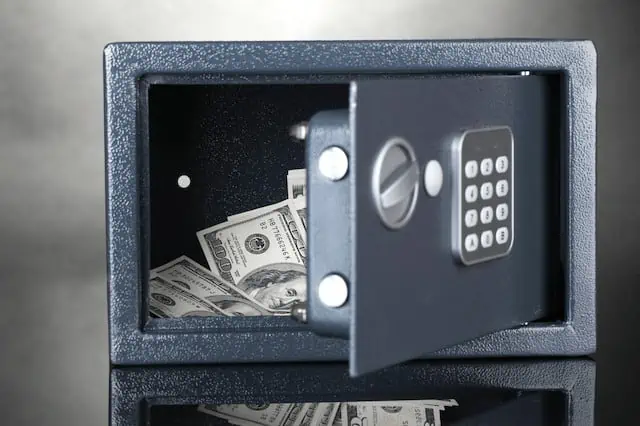
A money market mutual fund is a fixed-income fund that invests in debt securities. These funds are known for being low-risk and holding securities with very short maturities.
There are three categories of money funds: government, prime, and municipal. The funds are an excellent place to store money as they are secure, stable, and liquid.
While it may not match the returns of other fixed-income funds, a money market mutual fund is generally much safer. They are excellent places to keep your emergency fund or hold cash while you’re waiting for other investment opportunities to become available.
Like Young and the Invested’s content? Be sure to follow us.
8. Certificates of Deposit

A certificate of deposit (CD) is a savings vehicle that earns interest on a lump sum for a predetermined period of time.
CDs’ main selling point is their high interest rates. They offer a higher annual percentage yield (APY) than traditional savings accounts and usually beat out high-yield savings accounts, too. Also, a CD’s interest rate is locked in until it matures—the yield on a high-yield savings account can move over time.
The downside to the CD is that the money is illiquid for the duration of its term. Terms usually last from a few months to a few years, though some are longer. If you withdraw money before the term is over, an early withdrawal penalty is charged.
Related: 11 Best CD Alternatives to Capture Interest With Low Risk
9. Treasury Notes

As mentioned before, Treasury notes are considered between short- and medium-term in nature, taking more time to mature (two to 10 years) than T-bills. Like with T-bills, T-notes are backed by the full faith and credit of the U.S. government, making them very low-risk investments. They’re sold at terms of two, three, five, seven, and 10 years.
Related: Is It a Good Time to Buy Treasury Bonds?
Treasury notes pay a fixed interest rate every six months until the note matures. Federal taxes on interest earned are due each year, though the income is exempt from state and local taxes.
With T-notes and other bonds, you can either hold on until it matures, at which point your full principal will be repaid. But you can also sell the bond—which you’ll hopefully do for a gain, but you might have to sell at a loss. Either way, if you want to know how bonds move higher and lower, take a breath and brace yourself—it’s a mouthful:
Bonds’ performance is directly tied to market interest rates. Specifically, bonds have an “inverse relationship” with interest rates—when market interest rates rise, bond prices fall, and when rates fall, bond prices rise. Thus, all bonds have some level of “interest-rate risk,” and T-notes have more of it than T-bills. Why? If market interest rates rise, new bonds with higher rates will make comparable older bonds with lower rates look less enticing to investors. As a result, the market will price those older bonds lower. This effect is amplified on longer-dated bonds because they have more interest payments remaining.
Like Young and the Invested’s content? Be sure to follow us.
Put differently: If a bond you hold matures in four weeks, you probably won’t sell it early just because a new short-term bond with higher rates is available. But if your bond matures in, say, five years, you might sell your current bond to buy a bond with higher income potential.
The flip side of this risk? T-notes usually offer higher rates than T-bills. They’re also similarly liquid—yes, they take longer to mature, but you can usually buy and sell them with ease.
10. Short-Term Corporate Bonds

Just like the U.S. government issues bonds to help fund its operations, corporations frequently issue bonds to fund research, development, expansion, you name it.
Related: The 9 Best Dividend Stocks for Beginners
Generally speaking, corporate bonds have lower credit quality than U.S. Treasury bonds. Credit quality is generally determined by how likely an entity is to pay back its debts—and the credit-ratings agencies believe that just about any U.S. corporation has at least a little (if not a lot) more risk of going under than the U.S. government. Probably a fair bet.
That lower quality does mean more risk—but it also usually means better compensation in the form of higher yields.
Related: Best Schwab Retirement Funds for a 401(k) Plan
Also, “lower quality than Treasuries” doesn’t always mean “low quality.” Many corporate bonds are considered investment-grade, which means the bond rating companies generally deem them likely to be repaid. If you’re willing to accept more risk, you can invest in junk bonds, which are less likely to be repaid but also offer even sweeter yields as a result.
Like with U.S. Treasury bonds, short-term corporate bonds are fairly liquid—they don’t take long to expire, and if you need cash before that, you can typically sell without trouble. And like with T-notes and T-bills, many investors buy these through ETFs and mutual funds rather than individually.
And if You Really Want the Money in Your Possession: Cash

Cash is king, or so the saying goes. Many small businesses only accept cash payments, and some large businesses have a minimum amount you must spend to pay with a card. And during times of crisis, such as a natural disaster, credit card readers can go dark—cash always works.
But cash won’t grow in value. And if you lose it, it’s gone—bank and other accounts offer much more protected. So while it’s wise to have a little cash around, it’s a good idea to have most of your money saved or invested.
Where Is the Safest Place to Keep Your Money?

The safest place to keep your money is in debt issued by the federal government, such as savings bonds or T-bills. However, you can’t keep all of your money in savings bonds and similar assets, as they aren’t completely liquid.
Bank accounts are a wonderful place to keep money, since up to $250,000 per depositor, per institution, is FDIC-insured. Certificates of deposit are another safe, FDIC-insured option, though they are not liquid unless you pay an early-termination fee.
Also on the list of safe places to store your funds are money market accounts at banks with FDIC coverage and credit unions with NCUA coverage.
Like Young and the Invested’s content? Be sure to follow us.
Is It Safe to Keep Your Money at a Bank?

Yes, it’s safe to save money at a bank. However, many people seek alternatives for various reasons. Many bank alternatives offer a higher annual percentage yield, letting you grow your money faster. Depending on the savings vehicle, there can be many other perks, as well.
So while it’s safe to keep some of your money in a bank, it can be strategic to have some of your funds in other places, as well.
Are There Risks to Keeping My Money Somewhere Other Than a Bank?

Banks are not the only financial institutions that keep your money secure. Government debt, such as T-bills or savings bonds, are backed by the federal government and are therefore extremely safe.
To determine whether your money is safe in another non-bank financial institution, check whether your money is insured through the FDIC or NCUA. If your money is insured, it’s safe.
Related: Are Credit Cards Safer Than Debit Cards?
Cash, prepaid cards, and similar physical funds could be stolen, but that’s preventable with proper precautions. For an online bank or similar account, make sure security measures are in place to protect your personal information, such as your name and Social Security number.
What are the risks to keeping money with a non-bank financial institution?

Some non-bank financial institutions have no physical locations. If something goes wrong, it can be more challenging to get a hold of an employee to fix the problem. You’ll need to call or go online for help.
Make sure any financial institution you work with has security measures in place to protect both your money and your personal information. It’s also important to only work with financial institutions where your money is covered by one of the government-sponsored insurers, like the FDIC.
Like Young and the Invested’s content? Be sure to follow us.
Related: The Best Fidelity ETFs for 2024 [Invest Tactically]
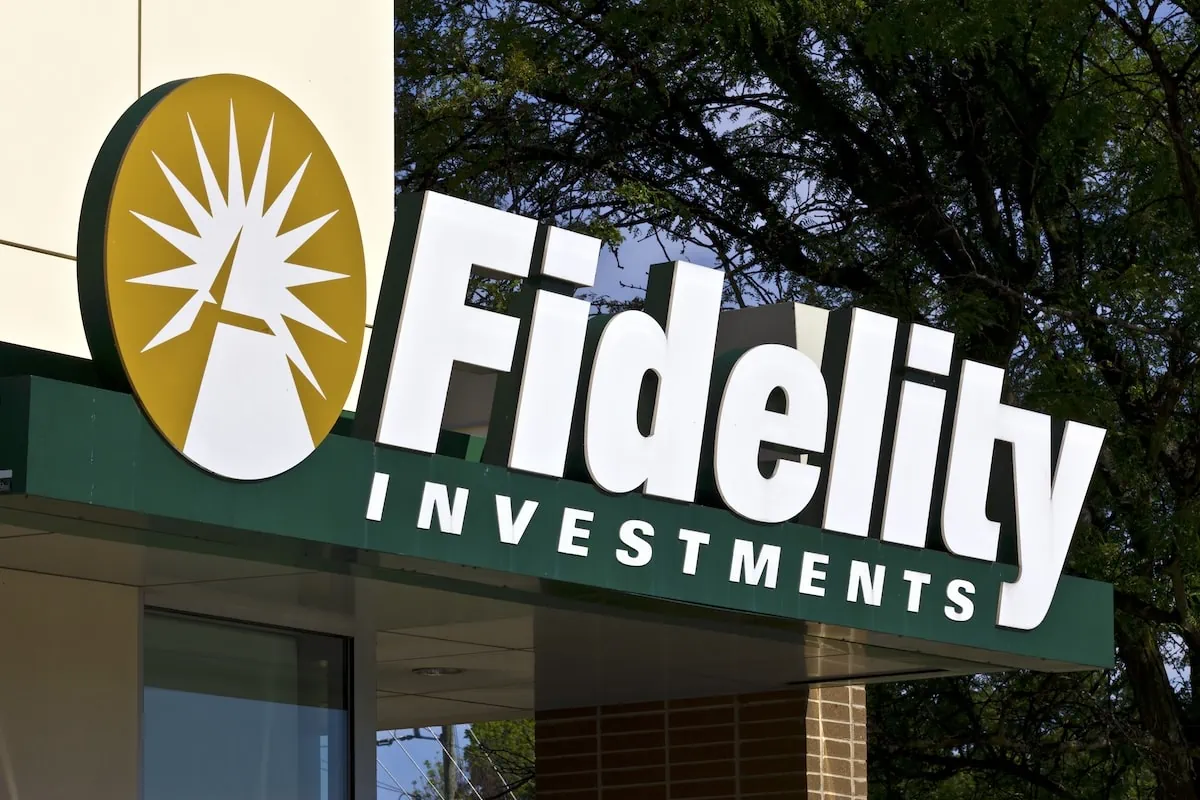
If you’re looking to build a diversified, low-cost portfolio of funds, Fidelity’s got a great lineup of ETFs that you need to see.
In addition to the greatest hits offered by most fund providers (e.g., S&P 500 index fund, total market index funds, and the like), they also offer specific funds that cover very niche investment ideas you might want to explore.
Related: Best Target-Date Funds: Vanguard vs. Schwab vs. Fidelity

Looking to simplify your retirement investing? Target-date funds are a great way to pick one fund that aligns with when you plan to retire and then contribute to it for life. These are some of the best funds to own for retirement if you don’t want to make any investment decisions on a regular basis.
We provide an overview of how these funds work, who they’re best for, and then compare the offerings of three leading fund providers: Vanguard, Schwab, and Fidelity.
Related: 9 Best Monthly Dividend Stocks for Frequent, Regular Income
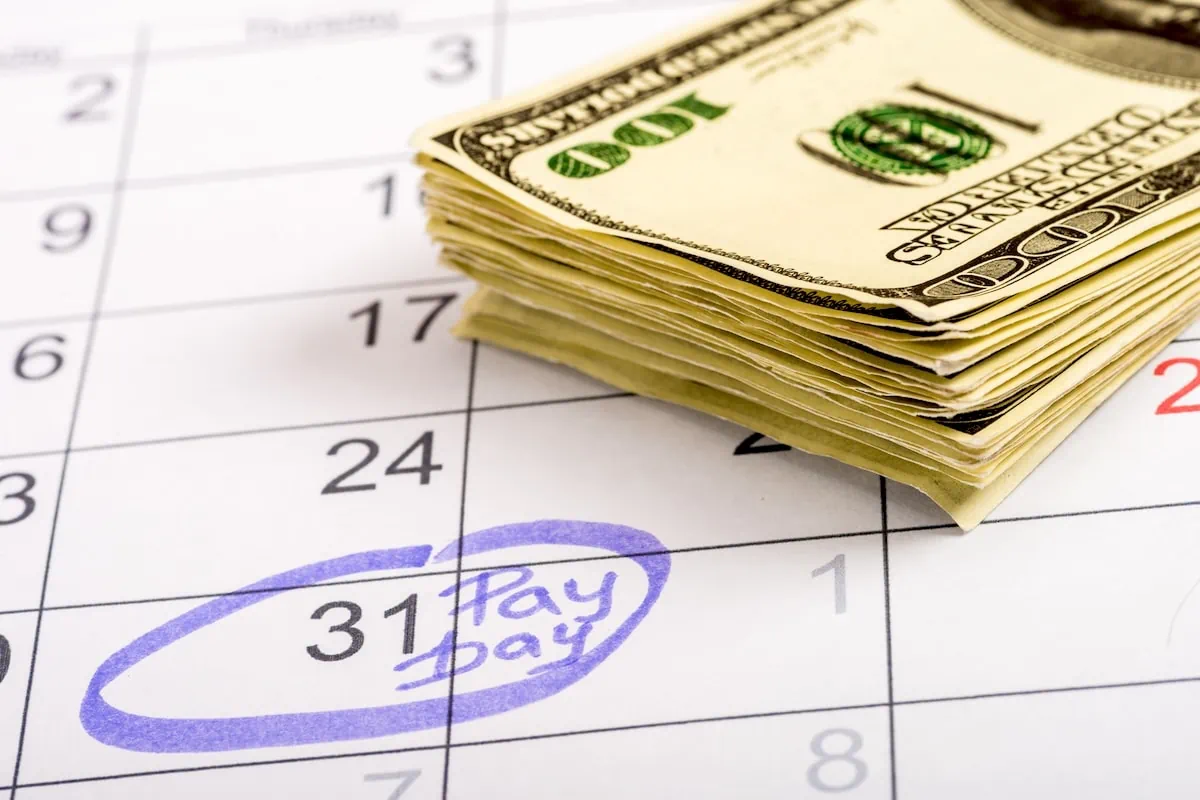
The vast majority of American dividend stocks pay regular, reliable payouts—and they do so at a more frequent clip (quarterly) than dividend stocks in most other countries (typically every six months or year).
Still, if you’ve ever thought to yourself, “it’d sure be nice to collect these dividends more often,” you don’t have to look far. While they’re not terribly common, American exchanges boast dozens of monthly dividend stocks.
Please Don’t Forget to Like, Follow and Comment
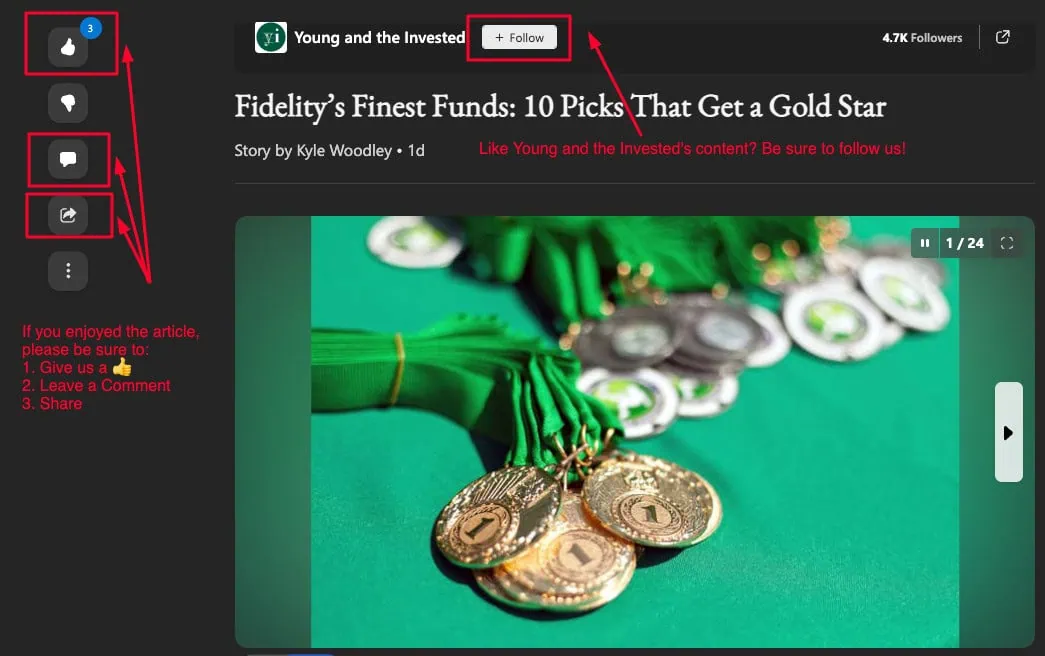
Did you find this article helpful? We’d love to hear your thoughts! Leave a comment with the box on the left-hand side of the screen and share your thoughts.
Also, do you want to stay up-to-date on our latest content?
1. Follow us by clicking the [+ Follow] button above,
2. Subscribe to The Weekend Tea, our weekly newsletter to read more about investing, spending, taxes, and more, and
3. Give the article a Thumbs Up on the top-left side of the screen.
4. And lastly, if you think this information would benefit your friends and family, don’t hesitate to share it with them!




